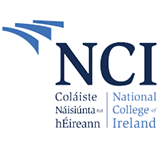Detailed introduction of National College of Ireland:
Introduction
National College of Ireland is a comprehensive educational institution located in Dublin, the capital of Ireland, offering full-time and part-time courses from undergraduate to postgraduate levels, covering a variety of fields such as business, computer, psychology and education.
Overview
Student size: about 6,000 students.
Teaching staff: 204 full-time academic staff.
Geographic location: located in Dublin's international financial services center, adjacent to Silicon Valley Pier, surrounded by many international companies' European headquarters, providing students with abundant internship and employment opportunities.
History
Founded in February 1951, it was originally jointly founded by Irish Jesuits and Irish trade unions, named Dublin Catholic Workers College.
In 1966, it was renamed the Irish Institute of Industrial Relations, when nearly 1,300 students from trade union and corporate management backgrounds studied there.
In 1976, several of the college's programs were recognized by the National Council for Education Awards (NCEA) of Ireland.
In 1998 In 2012, it was renamed the National Academy of Ireland and has an expanded national campus network and a series of national outreach projects.
In 2012, the chairman of the academy, Denis O'Brien, and Stanford University Emeritus Professor and 2020 ACM Turing Award winner Geoffrey Ullman jointly opened the academy's Cloud Competence Center.
Establishment time
1951.
School strength
Teaching mode: It is known for its small class teaching mode, with frequent interaction between teachers and students, which can better meet students' learning needs and improve teaching quality.
Course setting: The courses are rich and diverse, closely integrated with the industry, and focus on the cultivation of practical ability. For example, the courses of the School of Computer Science cover the latest technology fields such as cloud computing, data analysis, web technology and communication technology, and undergraduate students have a 6-month internship opportunity in their third year.
Cooperation and Exchange: We have established good partnerships with top higher education institutions around the world, such as the British Human Resources Association (CIPD), which is its largest training base in Ireland and the UK; we also maintain cooperative relations with world-class universities such as Stanford University, University of California, Berkeley, and Cornell University, which enhances the international influence and teaching and research level of the college.
Institutional Nature
The National College of Ireland is a non-profit, state-funded higher education institution.
Educational Philosophy
The educational philosophy of the college is "Let education change lives, cultivate talents, promote career development, and provide new opportunities", committed to combining theoretical learning with industry practice and community internships, cultivating talents with skills required by the real society, so that students can better adapt to the needs of society and the workplace.
Key laboratories and disciplines
Cloud Competence Center: It is the center of global cloud computing teaching and research, equipped with top-notch equipment, and has an advisory committee composed of academic leaders from Stanford University, University of California, Berkeley and Cornell University. It aims to lead Irish cloud computing to the forefront of the world and provide students with teaching, research and entrepreneurial skills.
Key disciplines:
Business School: Covering courses in business and management, accounting, finance, etc., it enjoys a high reputation in Ireland and even the world, and cooperates with many top higher education institutions. Its human resources management students can obtain CIPD membership after graduation.
School of Computer Science: Focusing on the latest technology fields such as cloud computing, data analysis, web technology and communication technology, graduates have strong competitiveness in the job market. Graduates of the Master of Cloud Computing and Master of Data Analysis are favored by enterprises.
School of Humanities and Social Sciences: Focusing on learning, teaching, psychology, leadership and other aspects, it has a long tradition in teacher training.
Faculty
The college has faculties such as the School of Business, the School of Computer Science, and the Center for Education and Lifelong Learning.
Ranking
Ranked 29th in the Global University Network National University Rankings.
Expenses
Tuition fees: Tuition fees for different majors and courses vary. For example, the tuition fee for the undergraduate to master's degree in finance is €15,000.
Accommodation fees: There are 53 student apartments in the student dormitory, with a total of 286 separate rooms. The accommodation fee (excluding meals) is approximately €5,800 per year.
Living expenses: The living cost in Dublin is approximately €250 per week.
Campus
Facilities: The campus is located in the center of Dublin, with convenient transportation. Although the campus is small, it has complete facilities, including lecture halls, computer laboratories, libraries, seminar rooms, etc., and the entire campus is covered by wireless network. In addition, the college also has sports facilities such as badminton courts, tennis courts, basketball courts, a 25-meter swimming pool, a gym, and various sports clubs and societies, providing students with a good learning and living environment.
Campus culture: Attach importance to student services and provide a full range of services such as learning support, medical services, and psychological counseling. The school also frequently holds various cultural activities to enrich students' extracurricular life, and organizes job fairs, open days and other activities to promote exchanges between students and enterprises and help students better plan their career development.
-

Dublin City University
-
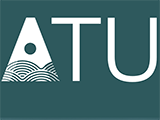
Atlantic Technological University
-

Garda Síochána College
-
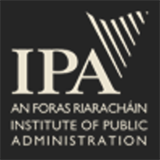
Institute of Public Administration
-
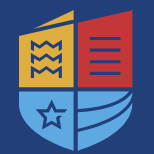
Munster Technological University
-

Dublin Business School
-

Maynooth University
-

Technological University Dublin
-
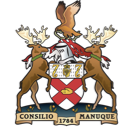
Royal College of Surgeons in Ireland
-

ICD Business School
-

Mesoamerican University
-

Istmo University
-

Mariano Galvez University of Guatemala
-

Regional University of Guatemala
-

Galileo University
-

Francisco Marroquín University
-

Rafael Landívar University
-

University of the Valley of Guatemala
-

University of San Carlos of Guatemala
-

Technological Institute of Tlaxcala Plateau
-

Golfo University
-

Technological University of South Sonora
-

Technological University of Huejotzingo
-

Tizimín Institute of Technology
-

Chilpancingo Institute of Technology

